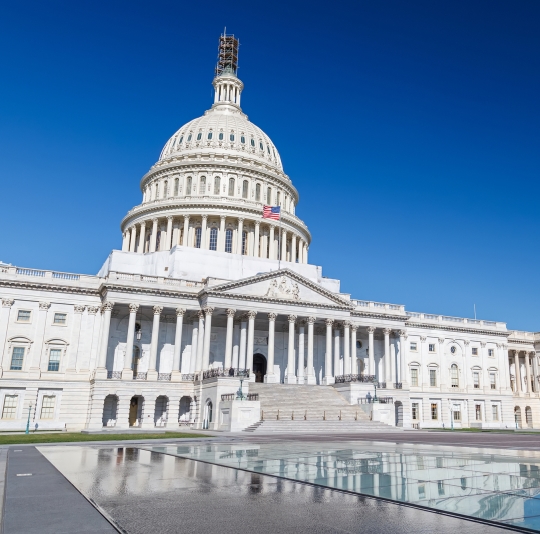Press Releases
Wexton Leads House Democrats in Call for PPP Loan Disclosures as Mnuchin Finally Concedes Need For Transparency
Washington,
June 17, 2020
Washington, DC -- Today, Congresswoman Jennifer Wexton (D-VA) led 34 of her colleagues in a letter to Treasury Secretary Steven Mnuchin and Administrator of the Small Business Administration (SBA) Jovita Carranza urging the immediate disclosure of information about Paycheck Protection Program (PPP) loans distributed to businesses with multiple employees and to require the collection of demographic data in all new PPP loan applications and PPP loan forgiveness applications. "Secretary Mnuchin has indicated that he is in support of ‘proper oversight’ of the PPP program, and this is what we believe proper oversight entails -- full transparency of the recipients, amounts, and dates of distribution of the hundreds of billions of dollars of taxpayer funds and the collection and publication of demographic data,” said Congresswoman Jennifer Wexton. “PPP funds have been a lifeline for millions of small businesses, but we’ve also seen evidence of preferential treatment for big businesses with many minority-owned institutions all but shut out of the process. We cannot allow the administration to distribute more than $500 billion in secret -- taxpayers deserve to know where their money is going, and that means full disclosure of PPP loans, not just those above a certain threshold." Last week, Secretary Mnuchin announced that the Trump administration would not release the names of the businesses and details of the loans disbursed through PPP, despite ongoing bipartisan and bicameral efforts to provide greater transparency into the program. Mnuchin reversed course on Monday, tweeting an acknowledgement of the need for transparency and oversight, following significant pushback from lawmakers including Congresswoman Wexton. The letter led by Congresswoman Wexton requests that information about PPP loans be disclosed in as similar a format as possible to existing disclosures of SBA 7(a) loans, the program on which PPP is based. The SBA has previously released detailed information on 7(a) loans dating back to 1991, including borrower and bank information, date of loan approval and loan amount, and status of the loan. Additionally, the PPP loan application informs borrowers that their information is subject to automatic disclosure under the Freedom of Information Act, and therefore businesses owners would not face any unexpected or undue burdens in this disclosure process. Wexton’s letter calls for the disclosure of all PPP loans distributed to businesses with multiple employees, not just loans above a specific threshold. Disclosing only loans above $2 million for example, as stipulated in the TRUTH Act, captures just 0.6% of loans and 21% of total PPP funds. Wexton’s letter also calls for the immediate collection of demographic data through all new PPP loan applications and applications for PPP loan forgiveness. This information is critical to aiding congressional oversight of the program and ensuring that relief is getting to small businesses in need, particularly those in rural and economically disadvantaged markets and those owned by minorities, women, and veterans. Last month, Congresswoman Wexton sent a letter to SBA Administrator Carranza asking what steps the SBA was taking to comply with requirements under the CARES Act to prioritize assistance for these underserved businesses. Since the PPP program began in April, reports have exposed cases of certain businesses receiving preferential treatment from banks and bigger businesses obtaining streamlined access to loans. A recent study from the National Bureau of Economic Research shows an alarming and disproportionate impact of the COVID-19 crisis on minority-owned businesses -- with the amount of Black business owners dropping by 41% and Latinx business owners dropping by 32%, compared to a 22% decrease in all active small business owners across the country. Despite this, a vast majority of minority- and women-owned small businesses may be shut out of PPP loans and only a fraction of minority-owned businesses who applied have received the full funding requested. In addition to Rep. Wexton, the letter is also signed by Representatives Cindy Axne (D-IA), Ami Bera (D-CA), Lisa Blunt Rochester (D-DE), Sean Casten (D-IL), Gilbert R. Cisneros, Jr. (D-CA), Emanuel Cleaver, II (D-MO), Jim Cooper (D-TN), Val Demings (D-FL), Mark DeSaulnier (D-CA), Bill Foster (D-IL), Josh Gottheimer (D-NJ), Al Green (D-TX), Alcee L. Hastings (D-FL), Jahana Hayes (D-CT), Denny Heck (D-WA), Jim Himes (D-CT), Daniel T. Kildee (D-MI), Ann McLane Kuster (D-NH), Mike Levin (D-CA), Dave Loebsack (D-IA), Gregory W. Meeks (D-NY), Debbie Mucarsel-Powell (D-FL), Jerrold Nadler (D-NY), Eleanor Holmes Norton (D-DC), Chris Pappas (D-NH), Chellie Pingree (D-ME), David Price (D-NC), Jamie Raskin (D-MD), Kim Schrier, M.D. (D-WA), David Scott (D-GA), José E. Serrano (D-NY), Adam Smith (D-WA), Jackie Speier (D-CA), Juan Vargas (D-CA), and Peter Welch (D-VT). The full text of the letter can be read here and below.
### |



